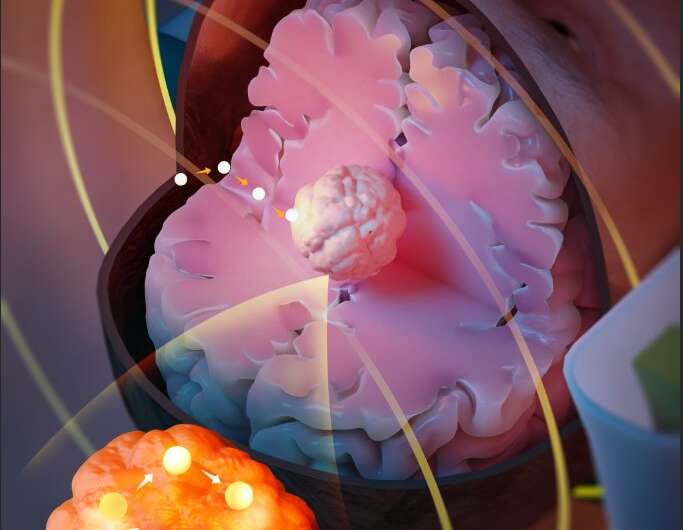
MRI scanners are widely used in hospitals around the world and are essential in the detection of diseases like cancer. However, they may soon be elevated from diagnostic equipment to a therapeutic platform, thanks to a group of researchers at University College London (UCL), who have used an MRI scanner to guide a tiny magnetic “seed” through the brain to heat and destroy cancer cells.
The novel breakthrough cancer therapy, which has been tested on mice, is called “minimally invasive image-guided ablation”, or MINIMA.
It consists of ferromagnetic thermoseeds, which are basically 2mm metal spheres, that are guided to a tumor using magnetic propulsion generated by an MRI scanner and then remotely heated to kill nearby cancer cells.
If this technique translates to humans, it could help to combat difficult-to-reach brain tumors by establishing “proof-of-concept” for precise treatment of cancers like glioblastoma, the most common form of brain cancer, and prostate, which could benefit from less invasive therapies.
MRI seeds boost the fight against cancer
The UCL researchers demonstrated the three major components of MINIMA to a high level of accuracy: precise seed imaging, navigation through brain tissue using a customized MRI system (tracked to within 0.3 mm accuracy), and eradicating the tumor in a mouse model by heating it.
The researchers used an MRI machine to direct 2mm diameter metal spheres, which were implanted superficially into the tissue, then navigated to the tumors. Then, they were heated to destroy the cells.
Using an MRI scanner to deliver a therapy in this way allows the therapeutic seed and the tumor to be imaged throughout the procedure, ensuring the treatment is delivered with precision and without having to perform open surgery. This could be beneficial to patients by reducing recovery times and minimizing the chance of side effects.
Cancer is a leading cause of mortality worldwide, accounting for almost 10 million deaths in 2020, making enhancing the precision of our cancer treatments one of the most pressing unmet needs we face today.
“One in 8 men will be diagnosed with prostate cancer. While treatments such as radiotherapy and surgery can be effective, they often cause unwanted and debilitating side effects such as incontinence and impotence,” said Professor Mark Emberton at UCL Division of Surgery and Interventional Science, who is the lead cancer clinician in the study. “MINIMA may allow us to precisely target and destroy prostate tumour tissue, reducing harm to normal cells,” he added.
In the future, the researchers plan to modify the seed’s structure so that it can function as a tiny cutting knife that can be guided through tissue. This would allow surgeons to do remotely controlled procedures and potentially revolutionizing non-invasive surgery.


Comments are closed